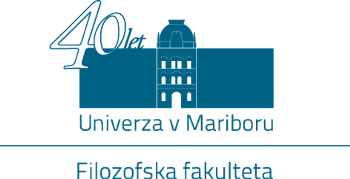

The Department of Pedagogy, Faculty of Arts, University of Maribor, University of Maribor Library, Austrian Cultural Forum and the Slovenian Pedagogical Association are organizing an
international symposium
Between Tradition and Future Challenges
The
Study of Pedagogy in Central and South-East Europe
 |
 |
 |
Content:
The establishment of pedagogy as an independent academic discipline coincides with Enlightement attempts to bring mass education under national regulation. A typical example of these efforts is the philanthropist movement, whose members managed to establish pedagogy as a university level academic subject at the University of Halle in 1779. The idea that pedagogy should be established as a university subject of study was touched upon by Marija Tereza as part of her school reforms as early as 1771. These initiatives were followed by the introduction of lectures on pedagogy at the University of Prague, although the institutionalised study of pedagogy as a university subject was first implemented in the Habsburg Monarchy, when a new plan of arts study was accepted in 1805. In the following period, pedagogy as a university subject went through various stages of development, as it reflected the needs of national and educational practice, matured in theoretical terms and grew independently from other academic disciplines – a process in which the abilities and academic authority of indvidual course heads were more influential than any systematic, general acceptance of the subject in university circles. Despite that, we can conclude that this model was the starting-point for its development in several nations after the collapse of the Austro-Hungarian monarchy.
How pedagogy developed as a university subject, especially in those countries which were part of or connected to the Austro-Hungarian monarchy, remains largely unresearched. We can assume that its development in individual nations has been researched and documented - understanding the development of one's own discipline is one of the basic requirements of scientific research – yet because of language limitations, to a large extent, this documentation is inaccessible to international academics and has prevented comparative research. The status of pedagogy as a science varies in international circles. The Anglo-Saxon tradition differs greatly from the tradition of the study of pedagogy in continental and, in particular, German-speaking countries. It seems that within the former Eastern bloc countries, a particular tradition of pedagogical study grew, and it would be interesting to see how the transitition after the fall of the Berlin wall has influenced this. Within this framework, another interesting question that arises is the continuity of studies in those countries which came into being after the break-up of Yugoslavia. Such comparisons, which seek to enrich our understanding of the position of pedagogy as an independent scientific discipline, would also be enhanced by considering the changes pedagogical study programmes have undergone as part of the Bologna reforms.
The themes of the symposium include historical and current dimensions of the position of padagogy as an academic discipline. The following questions will be considered in the historical section of the symposium:
As regards themes concerning the current position of pedagogy as an academic discipline, we are particularly interested in the changes brought by the Bologna reforms and comparisons with the previous situation – we will be seeking answers to the following questions:
Discussions which focus on the historical aspect of the main symposium themes and also discussions which focus on the Bologna reforms and current trends are welcome. We are also happy to accept papers which consider the study of pedagogy in the national context from the point of view of historical continuity.
Location:
Languages: